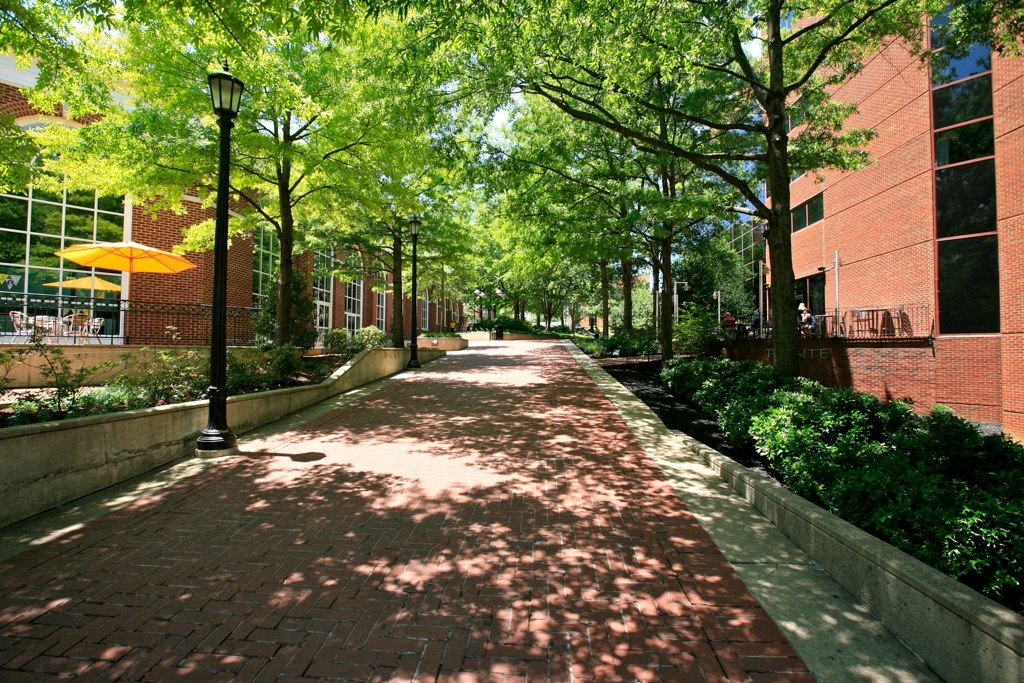What is a Land and Peoples Acknowledgement, and Why is it Important
A Land and Peoples Acknowledgement is a formal statement rooted in Indigenous protocol that recognizes the peoples who traditionally inhabited the land where you live or work and the relationship that continues to exist between Indigenous Peoples and their traditional territories. It’s a way of honoring and expressing gratitude to those who were traditional stewards of the land, while being mindful of the ongoing influence of colonial behaviors and belief systems.
At Mind & Life, we acknowledge the land and the peoples who inhabited the land where our office is located in Charlottesville, Virginia, as part of our commitment to our values: compassion, integrity, curiosity, inclusion, and excellence. This is important because local histories of colonization, disenfranchisement, and oppression have had devastating effects on the Indigenous and African American communities here. Mind & Life intends to build relationships, promote awareness, recognize resilience, and show respect for these communities, disrupting the history of silence and exclusion that has created disadvantages today.
Mind & Life Land and Peoples Acknowledgement for our Downtown Charlottesville Office

Mind & Life acknowledges that our Charlottesville office is located on the ancestral and unceded land of the Monacan Indian Nation, who have lived in central Virginia for over 10,000 years. In 1924, the Virginia General Assembly passed the Racial Integrity Act, which legally erased native identities and pushed many Monacan Indians to leave the state. At the same time, the Meriweather Lewis and William Clark statue was erected—visible from our office—depicting Sacagawea, a Lemhi Shoshone woman, crouching behind the two men, when in fact she was the guide and should be shown leading the way forward. Negotiations over sacred Monacan land, Virginia native identities and representations, and the Sacagawea statue are alive, contested, and ongoing, and it is our responsibility to join these conversations. Karenne Wood, a member of the Monacan Indian Nation and an anthropologist, examines this local history in this video.
Mind & Life also acknowledges that our Charlottesville office is located in the historic African American business and residential district of Vinegar Hill, which became a thriving neighborhood by the 1920s. By 1960, there were over 140 homes, 500 people, and 30 businesses, as well as churches and schools. That year, city residents who could pay the poll tax voted on an urban renewal project for downtown expansion that would raze Vinegar Hill. Despite community resistance, the project was approved and in 1964 Vinegar Hill was leveled, making way for new office buildings, including where Mind & Life is now based. The Black community was dispersed, losing a cultural hub, housing, and businesses, the legacy of which is still felt locally. Yet, the community shows great resilience, and our neighbors at the Jefferson School African American Heritage Center tell those stories and preserve the rich history.
Through our work at Mind & Life, we seek to cultivate interconnection and inspire action towards flourishing. To this end we are listening, learning, and participating in local conversations to disrupt and dismantle systemic oppression. Most recently, our office signed the Monacan Indian Nation’s public letter to the Virginia Governor to save Rassawek, their historic capital, where the James River Water Authority plans to build a water intake and pump station that would destroy Rassawek and disturb Monacan burial sites.
We also stand with our Vinegar Hill neighbors and the African American community. We recently published a statement against racism on our blog in the wake of George Floyd’s murder. While COVID-19 canceled our plans this spring for partnering with the Jefferson School African American Heritage Center to host a book release and offering our office space to an African American doula group for a training, we remain committed to building relationships and are seeking virtual connections.
Join Us
We ask you to join us in acknowledging the land and the peoples of Charlottesville by learning more and taking action. We hope that you’ll also learn more about where you live: whose land are you on, and what peoples were there before you? You might begin by consulting the U.S. Department of Art and Culture’s Guide and Call to Acknowledgement, or identifying whose land you are on with this interactive map of Native Land.


